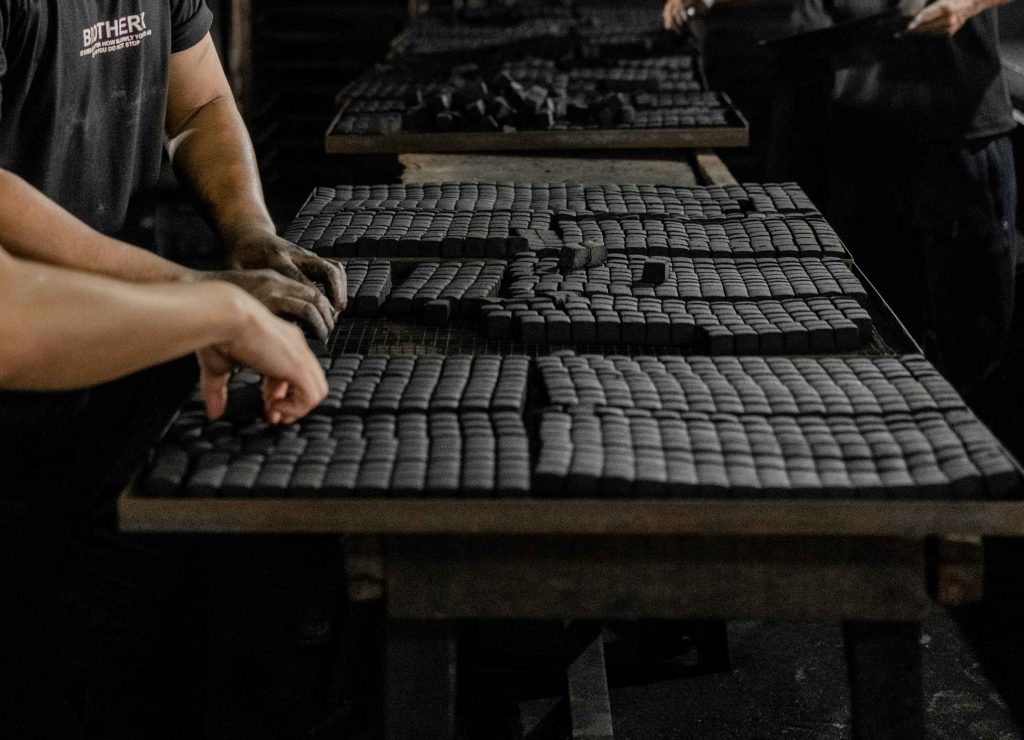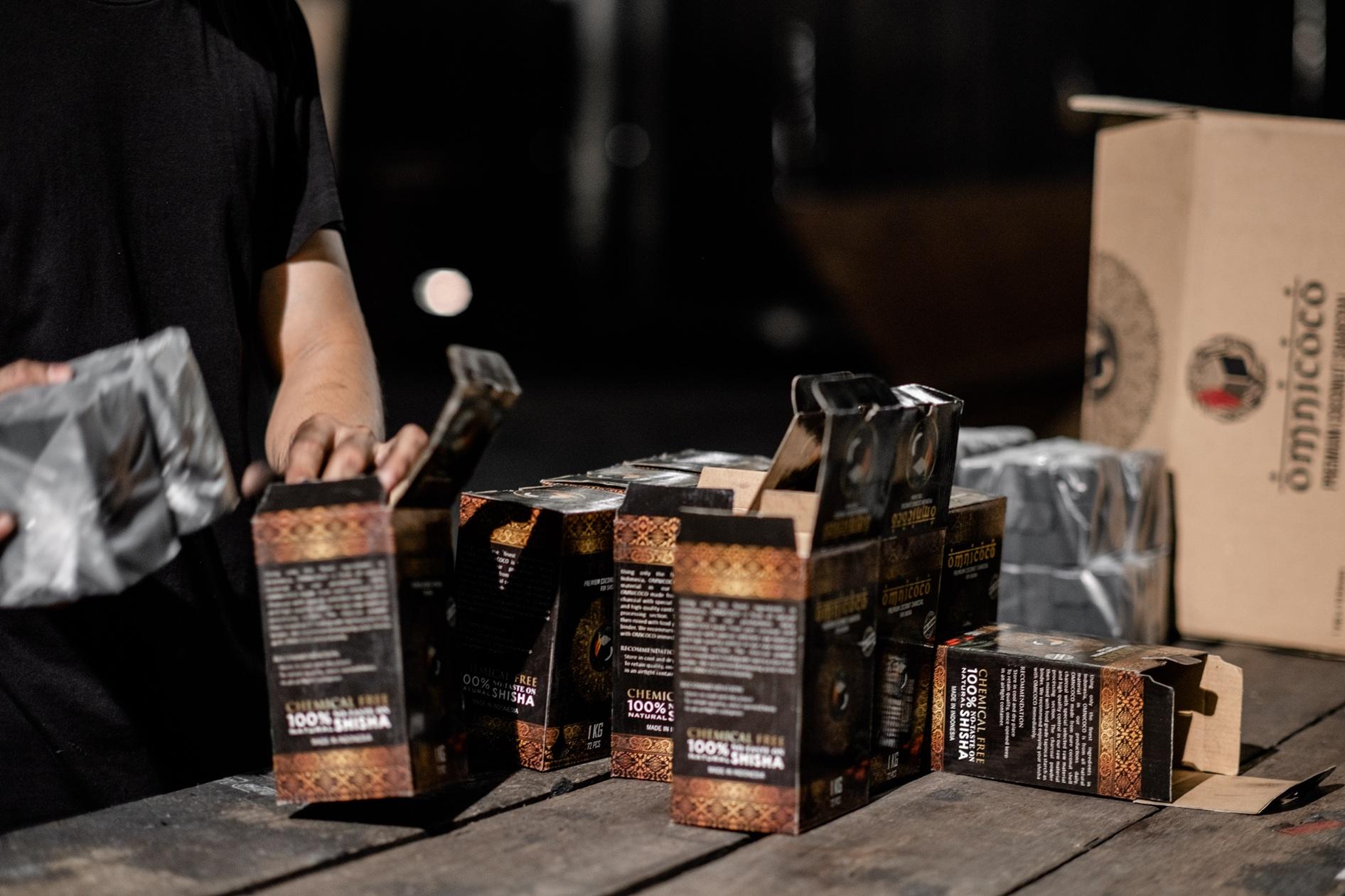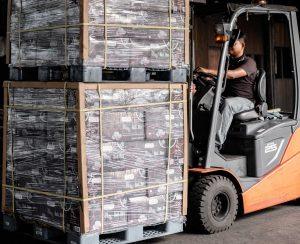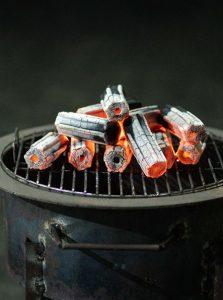Introduction
In the charcoal industry, stable Original Equipment Manufacturer (OEM) partnerships play a crucial role in maintaining high production standards, ensuring compliance with international regulations, and driving long-term business success.
Companies that establish stable OEM partnerships benefit from consistent product quality, streamlined supply chains, and enhanced competitiveness in global markets.
This article explores the advantages of stable OEM factory collaborations, focusing on key factors such as reliability, quality assurance, sustainability, cost efficiency, and market positioning.
By understanding the benefits of long-term OEM relationships, businesses can optimize their operations and build lasting success.
Defining Stable OEM Partnerships
Definition and Key Characteristics
A stable OEM partnership is a long-term collaboration between a manufacturer (OEM supplier) and a brand or distributor that ensures consistent product quality, supply reliability, and mutual business growth.
In the charcoal industry, such partnerships are essential for maintaining high production standards, meeting regulatory requirements, and delivering products that align with market demand.
Key characteristics of a stable OEM partnership include:
- Long-term agreements that ensure consistent supply and quality.
- Transparent communication between suppliers and buyers.
- Mutual investment in innovation and process improvements.
- Commitment to sustainability and regulatory compliance.
The Role of Long-Term Collaboration in Business Success
Long-term OEM relationships are not just about securing a reliable supplier—they contribute directly to a company’s growth and stability.
Businesses that cultivate stable partnerships gain access to:
- Consistent product quality that strengthens brand reputation.
- Efficient supply chain management that minimizes disruptions.
- Cost savings through bulk production agreements and streamlined logistics.
- A competitive edge in the market by ensuring product availability and meeting customer expectations.
Benefits of Stable OEM Partnerships
Establishing a stable OEM partnership offers businesses a range of strategic advantages that go beyond basic supplier relationships. In the charcoal industry, where quality control, sustainability, and cost efficiency are paramount, maintaining a long-term OEM collaboration ensures operational stability and competitive positioning. Below are the key benefits of a stable OEM partnership.
1. Consistent Product Quality and Supply Chain Efficiency
Reliable OEM suppliers follow standardized production processes to deliver consistent product quality. This is essential in the charcoal industry, where factors like burn efficiency, ash content, and carbonization levels directly affect product performance.
- Standardized Quality Control: Long-term partnerships allow manufacturers and brands to implement strict quality control measures, ensuring uniformity in every batch.
- Efficient Logistics: With established supply agreements, businesses experience fewer disruptions in production and distribution, leading to smoother inventory management.
- Predictable Lead Times: Reliable OEM suppliers help businesses meet market demand without unexpected delays or shortages.
2. Cost Savings and Optimized Manufacturing Processes
A stable partnership often results in cost efficiencies through bulk purchasing, improved resource allocation, and streamlined operations.
- Lower Production Costs: Long-term agreements allow businesses to negotiate better pricing on raw materials and manufacturing.
- Reduced Operational Waste: Consistent collaboration helps optimize production techniques, reducing excess material usage and improving efficiency.
- Economies of Scale: As order volumes grow, production becomes more cost-effective, benefiting both the supplier and the brand.
3. Stronger Compliance with Global Regulatory Standards
OEM partnerships help businesses stay compliant with international regulations. This is crucial for charcoal products, which must adhere to environmental and safety standards.
- Regulatory Alignment: Reliable suppliers ensure products meet regulatory standards.
- Sustainability Standards: Ethical sourcing and sustainable production practices become easier to maintain with a trusted OEM partner.
- Risk Mitigation: Strong partnerships reduce the risk of non-compliance, preventing potential legal issues and market restrictions.
4. Increased Trust and Reduced Risks in the Production Cycle
A well-established OEM relationship fosters trust and minimizes uncertainties in production and distribution.
- Risk Reduction: Stable collaborations reduce the likelihood of supply chain disruptions, defective products, and unexpected cost increases.
- Long-Term Planning: Businesses can confidently forecast demand, allocate resources, and strategize expansion with a reliable supplier in place.
- Innovation and Improvement: Trust-based partnerships encourage open communication, leading to continuous improvements in product quality and manufacturing techniques.
Investing in long-term OEM relationships leads to a secure and strong business foundation for growth, efficiency, and market success.

Enhance Quality Control From a Stable OEM Partnerships
Quality control is a critical factor in the charcoal industry, where product performance, safety, and compliance must meet strict standards. Stable OEM partnerships play a significant role in ensuring continuous quality improvements, reducing defects, and maintaining consistency. Here’s how long-term collaborations enhance quality control:
1. Continuous Improvement Through Feedback and Innovation
A strong OEM relationship fosters a system of continuous refinement in manufacturing processes.
- Ongoing Performance Monitoring: Businesses and their OEM partners can regularly assess production outcomes and adjust techniques to enhance product quality.
- Collaborative Innovation: With trust and long-term investment, OEM partners can work together to develop new product variations, improve combustion efficiency, or optimize packaging solutions.
- Adaptation to Market Needs: Stable partnerships allow suppliers to quickly respond to customer feedback and industry trends, ensuring that products stay competitive.
2. Strict Adherence to Industry Standards
Compliance with international quality and safety standards is essential in the charcoal industry. A long-term OEM relationship ensures that these benchmarks are consistently met.
- International Standard Compliance: Trusted OEM suppliers operate under internationally recognized standards, ensuring product consistency.
- Stringent Testing Protocols: Regular testing—such as moisture content analysis, burn efficiency checks, and ash residue control—ensures that every batch meets agreed-upon specifications.
- Documented Quality Assurance Processes: Stable partnerships establish clear quality control frameworks, minimizing the chances of defects or non-compliance issues.
3. Joint Quality Control Measures Between Suppliers and Buyers
With a well-established OEM relationship, businesses and manufacturers work together to uphold quality standards.
- Coordinated Inspections: Both parties participate in regular quality assessments, ensuring transparency in production.
- Custom Specifications: Long-term OEM agreements allow buyers to refine and enforce specific product requirements tailored to their market needs.
- Problem Resolution Efficiency: In case of quality concerns, stable partnerships lead to faster resolutions due to established trust and communication.
Economic Advantages of Long-Term OEM Relationships
Stable OEM partnerships not only enhance product quality and reliability but also provide significant economic benefits. From cost savings to technological advancements, long-term OEM collaborations enable businesses to scale efficiently while maintaining financial stability. Here’s how these partnerships drive economic advantages:
1. Reduced Production Costs Through Bulk Agreements
When businesses establish long-term contracts with OEM suppliers, they gain access to cost-saving opportunities that improve profit margins.
- Bulk Pricing Benefits: Large-volume commitments allow companies to negotiate better pricing on raw materials and manufacturing costs.
- Lower Per-Unit Costs: Consistent order volumes lead to economies of scale, making production more efficient and cost-effective.
- Minimized Waste: Stable OEM relationships facilitate better inventory planning, reducing overproduction and material waste.
2. Negotiation Leverage with Long-Term Suppliers
A committed OEM partnership enhances a company’s bargaining power, resulting in more favorable terms and conditions.
- Flexible Payment Terms: Reliable suppliers are more likely to offer extended credit terms or customized payment structures for long-term partners.
- Stable Pricing Agreements: Long-term contracts protect businesses from market fluctuations in raw material costs.
- Customized Service Agreements: Suppliers are more willing to tailor production processes, logistics, and packaging based on business needs.
3. Access to Advanced Manufacturing Technologies and Expertise
OEM suppliers continuously invest in improving their production capabilities. A stable partnership allows businesses to benefit from these advancements without incurring direct R&D costs.
- Cutting-Edge Machinery: Long-term suppliers often introduce modern equipment that improves efficiency and product quality.
- Process Optimization: Businesses can leverage their OEM partner’s expertise to refine manufacturing techniques, increasing productivity.
- Sustainable Production Innovations: Partnering with an experienced supplier helps companies implement eco-friendly solutions that align with global sustainability trends.
Sustainability and Environmental Responsibility in OEM Partnerships
Sustainability has become a crucial factor in global manufacturing, and the charcoal industry is no exception. Stable OEM partnerships play a key role in ensuring eco-friendly production practices, regulatory compliance, and responsible sourcing. Here’s how long-term OEM collaborations support sustainability:
1. Eco-Friendly Production Practices Enforced Through Partnerships
Sustainable OEM relationships encourage manufacturers to adopt environmentally responsible production methods.
- Efficient Carbonization Processes: Long-term suppliers invest in optimized carbonization techniques that reduce emissions and energy consumption.
- Sustainable Raw Material Sourcing: Reliable OEM partners ensure that raw materials, such as coconut shells or hardwood, are sourced from sustainable and renewable sources.
- Waste Reduction Initiatives: Stable collaborations promote recycling efforts, such as repurposing charcoal dust into briquettes or utilizing byproducts for other industrial applications.
2. Compliance with Global Sustainability
A strong OEM partnership helps businesses align with international environmental regulations standards.
- FSC (Forest Stewardship Council): Ensures that wood-based charcoal products come from responsibly managed forests.
- Environmental Management Standards: Encourages manufacturers to minimize environmental impact and comply with global sustainability goals.
- Carbon Footprint Reduction Measures: Long-term partnerships facilitate the implementation of greener logistics, such as optimized shipping routes and biodegradable packaging.
3. Corporate Responsibility in Ethical Sourcing and Waste Reduction
Ethical sourcing and sustainable manufacturing are essential for maintaining consumer trust and meeting market expectations.
- Fair Labor Practices: Stable partnerships ensure adherence to fair labor standards, promoting safe working conditions and ethical treatment of workers.
- Minimized Deforestation Impact: By working with responsible OEM suppliers, businesses can avoid contributing to deforestation and environmental degradation.
- Consumer Transparency: Companies with sustainable OEM partners can market their products as eco-friendly, attracting environmentally conscious customers.

How to Build and Maintain a Strong OEM Partnership
Establishing a stable and reliable OEM partnership requires careful planning, trust, and effective collaboration. Businesses that prioritize strong relationships with their OEM suppliers benefit from consistency, efficiency, and long-term success. Here are the key steps to building and maintaining a strong OEM partnership:
1. Key Factors for Choosing the Right OEM Partner
Selecting the right OEM supplier is the foundation of a successful long-term partnership. Businesses should evaluate potential partners based on:
- Manufacturing Capabilities: Ensure the supplier has the technical expertise, equipment, and capacity to meet production demands.
- Quality Control Standards: Look for partners who follow international quality standards.
- Reputation and Reliability: Research supplier history, industry reputation, and past performance to gauge trustworthiness.
- Commitment to Sustainability: Choose a supplier that aligns with your company’s sustainability and ethical sourcing goals.
- Financial Stability: A financially stable OEM partner is more likely to sustain long-term commitments without disruptions.
2. Communication and Contract Management Best Practices
A well-defined contract and open communication channels are essential for maintaining a smooth and productive OEM relationship.
- Clearly Defined Agreements: Outline production specifications, delivery schedules, pricing structures, and quality expectations in a detailed contract.
- Transparent Communication: Establish regular meetings, reporting systems, and direct lines of contact to discuss production progress and address any issues.
- Performance Monitoring: Use key performance indicators (KPIs) to track quality, delivery times, and efficiency improvements.
- Conflict Resolution Strategies: Define clear procedures for addressing potential disputes or production challenges before they escalate.
3. Strategies for Adapting to Market Changes and Supply Chain Disruptions
A strong OEM partnership should be flexible and adaptable to market fluctuations, regulatory updates, and global supply chain challenges.
- Diversified Sourcing Strategies: Reduce risk by working with multiple OEM suppliers or securing alternative raw material sources.
- Technology Integration: Implement digital tracking systems, automation, and data analytics to optimize production efficiency and supply chain visibility.
- Crisis Management Plans: Develop contingency plans to handle unexpected disruptions, such as shipping delays, raw material shortages, or regulatory changes.
- Ongoing Collaboration and Feedback: Encourage continuous improvement by regularly reviewing performance and making necessary adjustments to maintain competitiveness.
Conclusion
Stable OEM partnerships are a cornerstone of success in the charcoal industry, providing businesses with consistent product quality, cost efficiency, regulatory compliance, and market competitiveness. By fostering long-term collaborations, companies can secure a reliable supply chain, reduce production risks, and adapt to industry advancements with greater flexibility.
The key benefits of a stable OEM partnership include:
- Reliable product consistency through stringent quality control and adherence to industry standards.
- Cost savings and production efficiency gained through bulk agreements and streamlined manufacturing.
- Enhanced sustainability by partnering with suppliers committed to ethical sourcing and environmental responsibility.
- Stronger market positioning due to improved trust, brand reputation, and supply chain resilience.
For businesses in the charcoal sector, investing in stable OEM relationships is not just a strategy—it’s a necessity for long-term growth and global competitiveness. By carefully selecting the right OEM partner, maintaining transparent communication, and adapting to market changes, companies can create a foundation for sustained success.
If you are looking for an charcoal OEM factory, you can visit us on this site. At OmniCo, we offer a variety of natural charcoal products to suit your needs. We have shisha coconut charcoal, BBQ coconut charcoal, and hexagonal hardwood charcoal.




